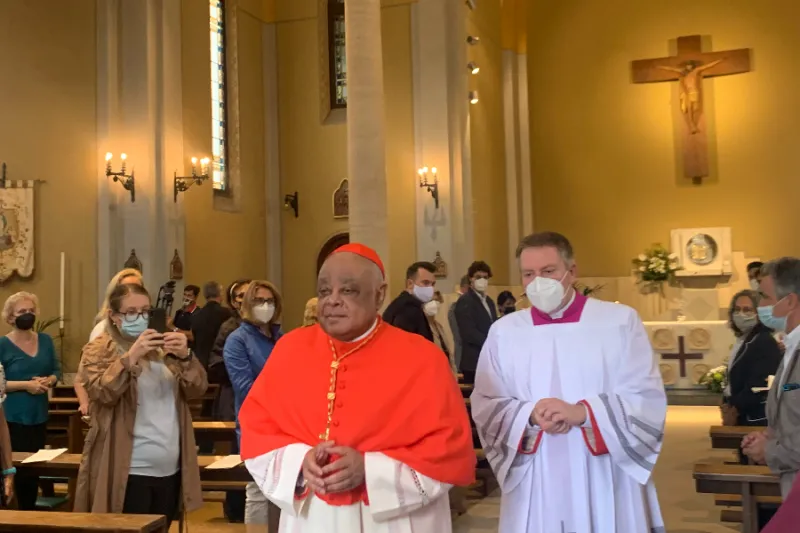
Rome, Italy, Sep 27, 2021 / 10:00 am (CNA).
Cardinal Wilton Gregory is in Rome this week to take possession of the church assigned to his care as a cardinal.
The first African American to be made a cardinal in the Catholic Church has been given the Church of the Immaculate Conception in Grottarossa as his titular church in the diocese of Rome.
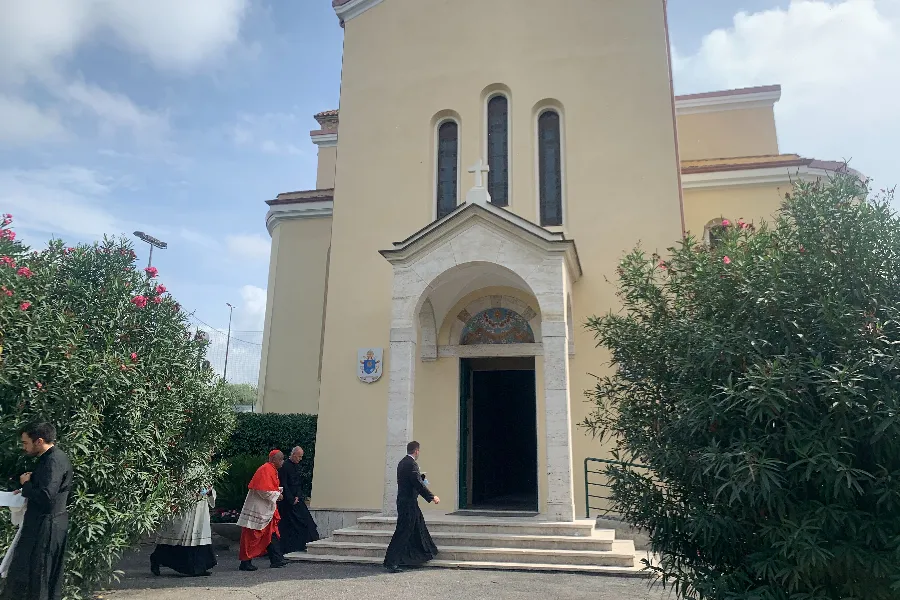
“I am particularly thankful because the Immaculate Conception is also the Patroness of the Church in the United States of America,” Gregory said on Sept. 27.
The cardinal archbishop of Washington joined the parish community in the northern outskirts of Rome for midday prayer in his first official visit to his titular church.
Cardinals are assigned a titular church to formally make them a part of the diocese of Rome, whose bishop is the pope. This means that cardinals are always linked to Rome, even if they reside elsewhere.
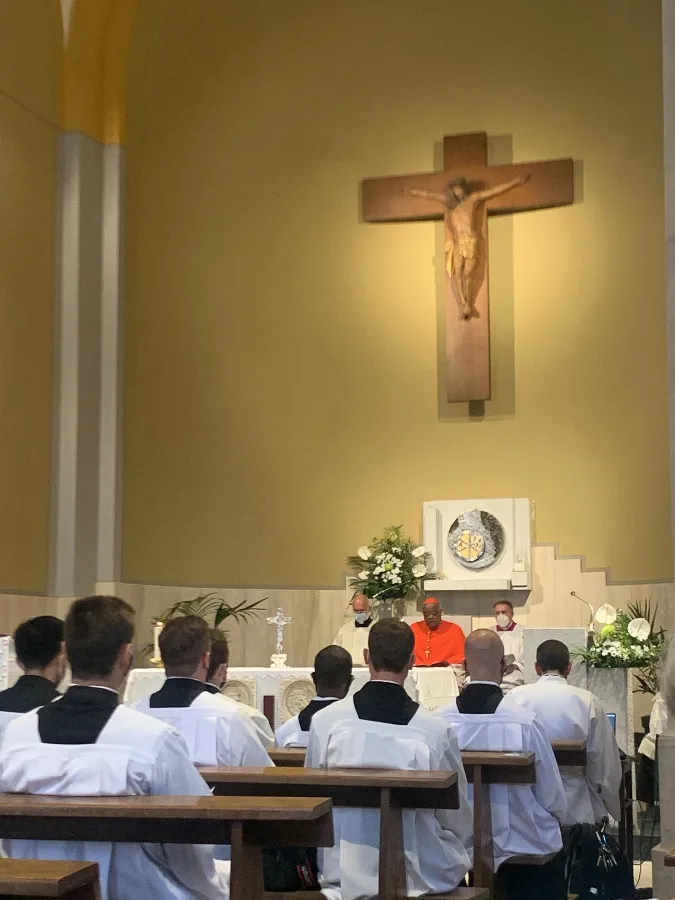
Pope Francis made Gregory a cardinal in the Catholic Church’s last consistory, held on Nov. 28, 2020.
As archbishop of Washington, Gregory has been at the center of discussion in recent months over whether pro-abortion Catholic politicians should be admitted to Communion. He told a reporter last year that he would not deny Communion in such cases.
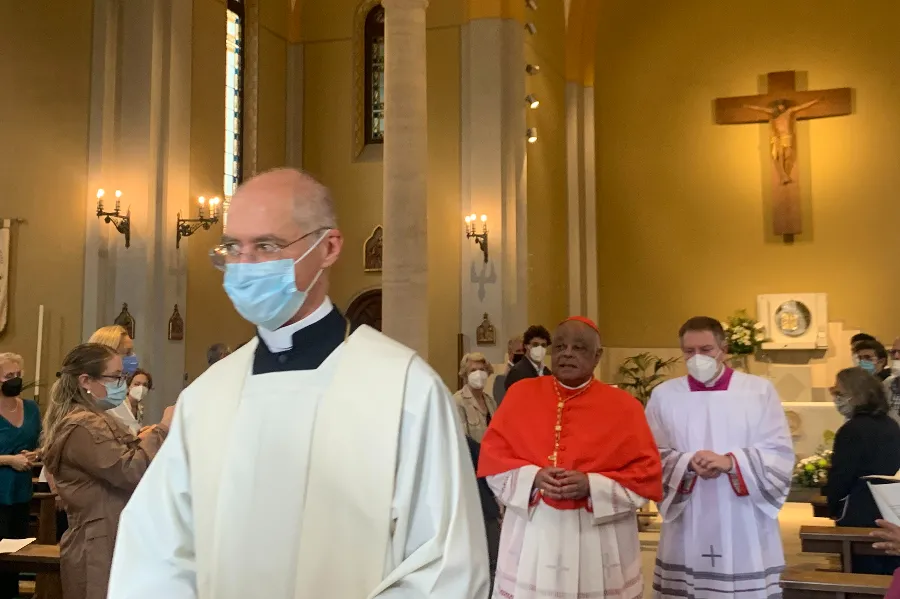
During the U.S. bishops’ meeting in June, Gregory cautioned against drafting a teaching document on the Eucharist that would include language on worthiness to receive Communion, especially among Catholic public figures.
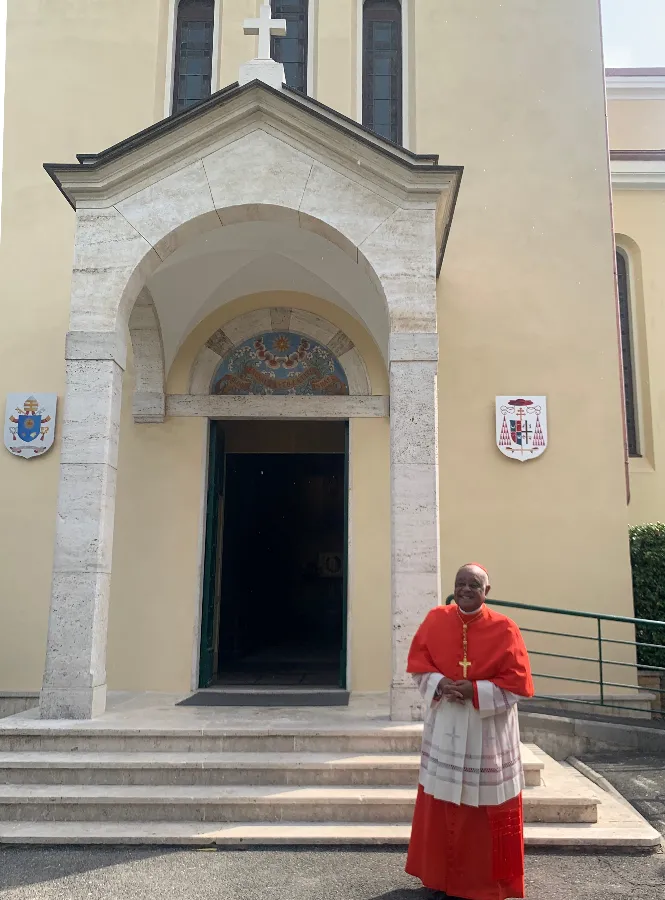
U.S. President Joe Biden and House Speaker Nancy Pelosi are both Catholic and strongly support legal abortion and taxpayer-funded abortion.
Cardinal Gregory said earlier this month that the president “is not demonstrating Catholic teaching” after Biden commented that he did not “agree” that life begins at conception.
As the archbishop of Washington took possession of his titular church at noon on Sept. 27, Pope Francis gave a speech to the Pontifical Academy for Life in which he reiterated that abortion is murder.
“Is it right to eliminate, to take a human life to solve a problem? Is it right to hire a hitman to solve a problem? That’s what abortion is,” the pope said.
He added that while abortion is considered “normal” by some people today, it is “a practice that is very ugly. It is really murder.”
Pope John Paul II established Immaculate Conception as a titular church in 1985, when it was assigned to the Polish Cardinal Henryk Gulbinowicz, who died on Nov. 16, 2020.
If you value the news and views Catholic World Report provides, please consider donating to support our efforts. Your contribution will help us continue to make CWR available to all readers worldwide for free, without a subscription. Thank you for your generosity!
Click here for more information on donating to CWR. Click here to sign up for our newsletter.




We read that abortion is “a practice that is very ugly. It is really murder.” But, also, that any talk of Eucharistic coherence must be deterred…
Why are we reminded of the Soviet fake/showpiece Potemkin Villages?